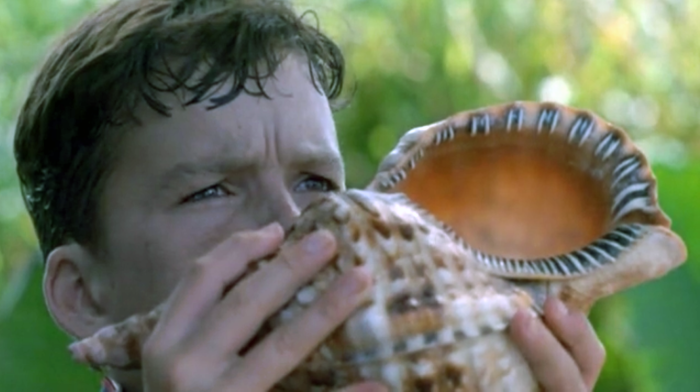Embark on an intriguing exploration with the Chapter 8 Lord of the Flies Quiz. Dive into the depths of this iconic novel, examining the complexities of civilization and savagery through the lens of its captivating characters and thought-provoking themes.
As we delve into Chapter 8, we’ll unravel the significance of Ralph’s leadership, Jack’s influence, and the profound symbolism embedded within the conch. Prepare to be captivated by the boys’ descent into chaos, fueled by fear and superstition, as we uncover the historical context and critical reception that have shaped this literary masterpiece.
Chapter Summary
Chapter 8, “A Cry for Help,” marks a pivotal moment in the boys’ descent into savagery.
As the group continues to fragment, Ralph and Piggy find themselves increasingly isolated and outnumbered by Jack’s hunters.
This chapter highlights the growing tension between civilization and savagery, as the boys’ primal instincts begin to dominate their rational thoughts.
Main Characters and Actions
- Ralph: Desperate to maintain order and reason, Ralph tries to rally the remaining boys to his side.
- Piggy: Piggy’s intelligence and logic become liabilities, as the hunters mock and belittle him.
- Jack: Jack’s charisma and cunning allow him to consolidate his power over the majority of the boys.
- Simon: Simon, the visionary and spiritual guide, senses the impending danger and tries to warn the others.
Significance of the Chapter
Chapter 8 is a turning point in the novel, as it shows the boys’ rapid descent into chaos and violence.
The chapter foreshadows the tragic events that will unfold in the coming chapters and explores the themes of civilization vs. savagery, the fragility of innocence, and the dangers of mob mentality.
Character Analysis: Chapter 8 Lord Of The Flies Quiz
Ralph is the elected leader of the boys on the island, and his leadership qualities are tested throughout this chapter. He is a natural leader, as he is able to inspire the boys to work together and build a functioning society.
However, his leadership is also challenged by Jack, who represents the more savage and primal side of human nature.
Ralph’s Leadership Qualities, Chapter 8 lord of the flies quiz
- Natural leader: Ralph is able to inspire the boys to work together and build a functioning society.
- Courageous: Ralph is not afraid to stand up for what he believes in, even when it is unpopular.
- Intelligent: Ralph is a quick thinker and is able to come up with solutions to problems.
- Fair: Ralph tries to be fair to everyone, even those who disagree with him.
The Impact of Jack’s Influence on Ralph
Jack’s influence on Ralph is negative. Jack represents the more savage and primal side of human nature, and he encourages the boys to give in to their baser instincts. Ralph, on the other hand, represents the more civilized and rational side of human nature, and he tries to maintain order and reason on the island.
Jack’s influence on Ralph is a constant threat to Ralph’s leadership, and it ultimately leads to Ralph’s downfall.
Symbolism and Themes
In Chapter 8 of Lord of the Flies, symbolism and themes play crucial roles in shaping the narrative and exploring profound ideas about human nature.
Symbolism of the Conch
The conch shell remains a potent symbol throughout the chapter. Its significance lies in its ability to establish order and maintain a semblance of civilization among the boys. As long as the conch is intact and respected, the boys can engage in rational discussions and decision-making.
Civilization vs. Savagery
The chapter continues to delve into the ongoing conflict between civilization and savagery. The conch represents the former, while the increasingly primal instincts of the boys symbolize the latter. The conch’s gradual disintegration mirrors the boys’ descent into chaos and violence.
Fear and Superstition
Fear and superstition exert a powerful influence on the boys’ behavior. The fear of the beast intensifies, leading to irrational and superstitious beliefs. These beliefs fuel the boys’ paranoia and contribute to their increasingly savage behavior.
Literary Devices
Chapter 8 of Lord of the Flies employs a range of literary devices to enhance its narrative and convey its themes. These devices include foreshadowing, imagery and sensory details, and dialogue and narration.
Foreshadowing
Foreshadowing is used throughout the chapter to hint at future events and build suspense. For example, when Ralph and Piggy encounter the sow’s head, Piggy remarks that it is “like a lord of the flies.” This comment foreshadows the savage nature that will soon engulf the island and the eventual rise of Jack as a tyrannical leader.
Imagery and Sensory Details
Golding uses vivid imagery and sensory details to create a rich and immersive atmosphere. For instance, the description of the “furtive and feral” boys hunting pigs conveys the primal nature of their existence on the island. The use of sensory details, such as the “sound of the conch” and the “smell of the smoke,” helps to ground the reader in the physical world of the novel.
Dialogue and Narration
The dialogue and narration in the chapter are used to reveal the characters’ thoughts and motivations. The dialogue between Ralph and Piggy highlights their contrasting perspectives on the island’s society. Ralph’s idealistic views are juxtaposed with Piggy’s practical and pessimistic outlook.
The narrator’s voice provides insight into the characters’ inner thoughts and the overall atmosphere of the island.
Historical Context
Lord of the Flieswas written in the aftermath of World War II, a conflict that had a profound impact on the author, William Golding. The novel reflects the disillusionment and pessimism that pervaded British society in the post-war period.
Influence of World War II
- Golding served in the Royal Navy during the war and witnessed firsthand the horrors of combat.
- The novel’s setting on a remote island is reminiscent of the isolated battlefields of the Pacific theater.
- The boys’ descent into savagery parallels the wartime atrocities committed by both sides.
Parallels Between the Boys’ Behavior and the War
- The boys’ initial excitement about being stranded on the island mirrors the patriotic fervor that gripped many countries at the outbreak of war.
- The gradual breakdown of order and the rise of violence among the boys reflect the chaos and destruction that characterized the war.
- The characters of Jack and Ralph represent the conflicting ideologies of fascism and democracy that clashed during the war.
Critical Reception
Lord of the Flies has received widespread critical acclaim since its publication. Critics have praised its complex characters, allegorical themes, and vivid portrayal of human nature.
The novel has been interpreted in various ways. Some critics see it as a cautionary tale about the dangers of totalitarianism and mob rule, while others view it as a more nuanced exploration of the human psyche and the struggle between good and evil.
Areas of Debate and Controversy
There have been some areas of debate and controversy surrounding Lord of the Flies. Some critics have argued that the novel is too pessimistic and that it does not offer any hope for humanity. Others have objected to the violence and brutality depicted in the novel.
Despite these criticisms, Lord of the Flies remains a widely respected and influential work of literature. It is a complex and challenging novel that offers a thought-provoking exploration of human nature.
Questions Often Asked
What is the significance of the conch in Chapter 8?
The conch symbolizes order and civilization, representing the hope for maintaining a structured society amidst the chaos.
How does Jack’s influence impact Ralph’s leadership?
Jack’s charisma and focus on hunting undermine Ralph’s authority, leading to a division within the group.
What is the role of fear in the boys’ behavior?
Fear of the unknown, the beast, and each other drives the boys towards savagery and violence.

